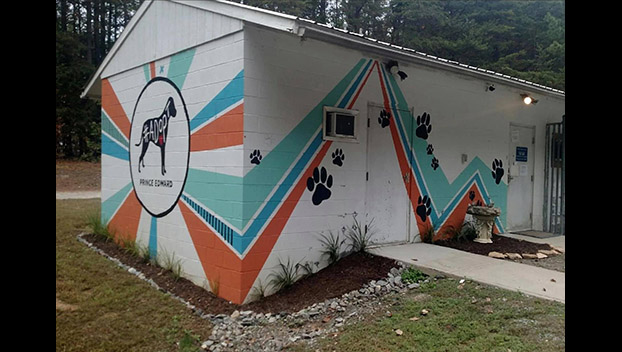Financial survival in a pandemic
Published 6:00 am Friday, June 5, 2020
The novel coronavirus pandemic has had a heavy financial impact on many area residents, often resulting in permanent job losses and necessitating tough choices.
Prince Edward County Social Services Director Roma Morris said the department had been working throughout the pandemic to help those financially impacted by the coronavirus to obtain benefits like food stamps or Medicaid, as well as to provide services needed to children, families and the elderly.
Morris said housing and food are the most important expenses to budget for, emphasizing the importance of having a roof over one’s head in times of crisis. She said Social Services can provide help for those concerned about being able to afford housing during the pandemic, including referring residents to local organizations like STEPS Inc.
“We will try to help them find a way to get that rent paid.”
Morris said Social Services saw a huge influx of individuals applying for food stamps during the height of the pandemic when many residents were laid off.
She said the department was seeing 45-50 new cases of food stamp applications per week at one point, and one of the department’s biggest hurdles during the pandemic was ensuring cases were handled as quickly as possible to help individuals get the benefits they urgently needed.
She said Social Services also refers individuals that struggle with buying food to FACES Food Pantry in Prince Edward.
Morris also discussed the Federal Pandemic Unemployment Compensation (FPUC) under the CARES Act, which allowed for a temporary increase in emergency unemployment benefits during the pandemic. Under FPUC, eligible claimants were able to obtain $600 more per week on top of their existing benefits.
However, the week ending July 25 will be the last payable week for FPUC additional benefits.
She said many unemployed residents were no longer eligible for food stamps when receiving FPUC benefits, but those individuals can reapply once the term is up. Morris anticipated another surge of food stamp applications once July 25 hits.
Jonathan Miller, of Buckingham, became unemployed unexpectedly when the effects of the pandemic permanently closed Farmville’s Ruby Tuesday restaurant.
Miller had just brought his 9-year-old daughter, who had been living in South Carolina with her mother, back home with him to Virginia when he got the news he no longer had a job. Concern ignited in him of how he would be able to support her.
“If she needed something at that point I wouldn’t have been able to give it to her, and that really messed with me … I had a quarter tank of gas in my car at that time and no way to fill it back up.”
Miller said he was one of the lucky ones when he was able to finally obtain unemployment benefits after weeks of round-the-clock calls.
He said the termination of FPUC benefits in late July is a frightening spot on the horizon as someone who has a child to support and is now jobless.
Miller added that although the additional unemployment benefits were incredibly helpful, especially compared to restaurant industry wages, he would have gladly traded that money for a chance to go back to work, even though he himself suffers from respiratory issues that make him vulnerable to viruses.
Miller said his finances were hit hard when hours at work were reduced during the beginning of the pandemic. After losing his job entirely, he felt immense worry when trying to budget in the age of the coronavirus with such an uncertain economic future. He felt terrified about future job prospects as the market opens back up and those in the same boat scramble to find employment.
Like many, Miller was ready to sacrifice a lot in order to support his loved ones during the pandemic.
“You better believe I would have jumped right in the middle of the coronavirus If I had to in order to make money for my kid.”
Danny Cooper, of Keysville, who owns and operates Cooper’s Lawn Service LLC, which mainly does business within the town limits of Farmville, said the effects of the pandemic were a huge hit to his lawn care company.
Cooper said the job losses and business closures due to the pandemic meant few could afford to pay for lawn care services even at the beginning of the peak of lawn maintenance season. Business became so slow that he made the decision to take up a full-time job at The Woodland in Farmville in order to provide for himself and his family.
Cooper had to carefully balance which bills were paid, paying special attention to which were due the soonest. He said after making sure he covered essentials like his mortgage, water and electricity bill, any extra funds were then funneled to things like his car payment or internet bill.
“Luckily, after the onset of the pandemic, some utilities worked with customers, either with billing assistance, delaying payments or not suspending service for late payments,” he added.
He said thankfully as of the last few weeks all of his bills were finally paid up and he was once again in good financial standing. The lawn care business, Cooper said, is rebounding and calls are coming back in. He now maintains a balance of enjoying his work at The Woodland while also making sure Cooper’s Lawn Service succeeds.
“This pandemic caught everyone off-guard,” Benchmark Community Bank Executive Vice President LeAnne Emert said, “especially when you consider it’s been more than 100 years since the last global pandemic and our world has changed so dramatically since then.”
Emert said the uncertainty associated with the government shutdown and gradual reopening of Virginia had caused consumers and businesses to have to take a strong, hard look at how they operate day-to-day and for the long term.
As a result, she said, budgeting for the unexpected is now in the forefront of many people’s minds.
Emert said the financial tolls of the pandemic have motivated many to begin paying closer attention to being prepared in the event of an unplanned financial interruption in their lives, including having a plan to carry both family and/or a business through until life “resumes to normalcy.”





